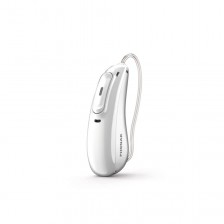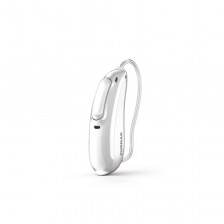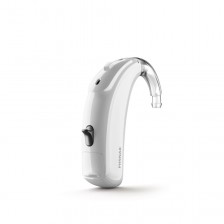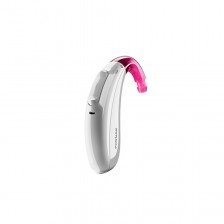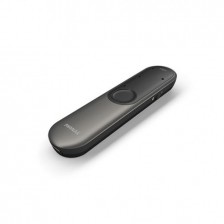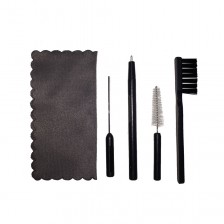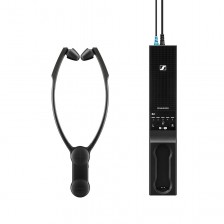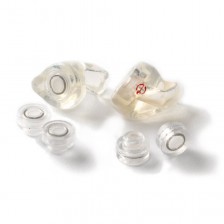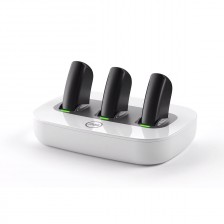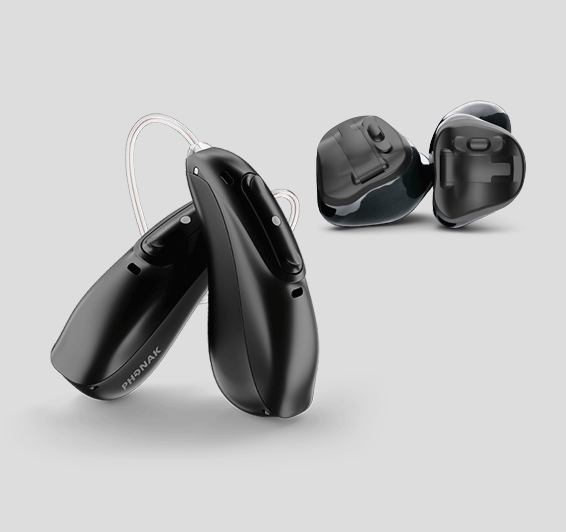What types of hearing loss are there?

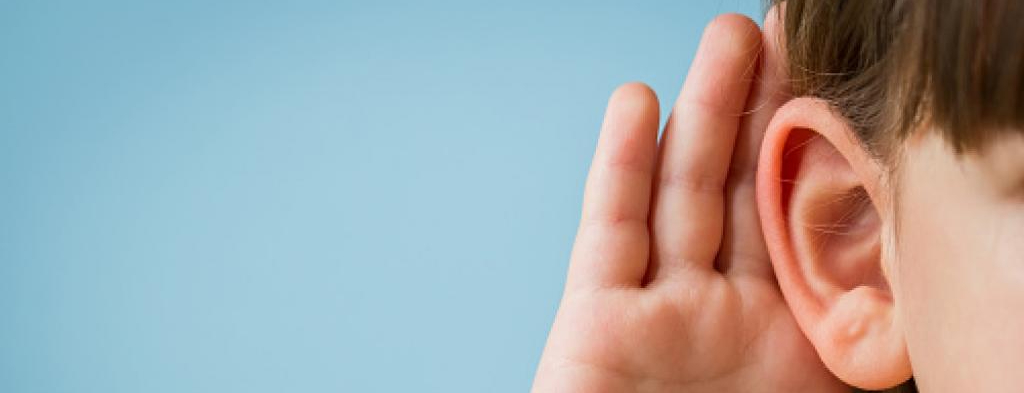
Talking about hearing loss in public is still difficult. Especially when it is experienced firsthand. Prejudices or lack of information are some of the main reasons why people try to hide this topic. However, this should not be the case because it is one of the most common health problems.
Every year, the World Health Organization celebrates World Hearing Day (March 3) with the aim of raising awareness of hearing problems in society. Likewise, they also promote actions to encourage diagnosis and treatment without forgetting the importance of acquiring preventive habits from a young age. Do you know what this year's slogan was? "Don't let hearing loss limit you. Listen for life."
We can all make sure that people suffering from these health problems do not feel excluded from society. And that's why it's so important to speak openly about hearing loss. On the other hand, it never hurts to be informed, and if you are diagnosed with hearing loss in the future, everything will be easier and more bearable if you already know the essential keys.
In this article, we invite you to learn more about the different types of hearing loss, so that you will be able to recognize them if you think you may be developing any of them. In that case, it is important to see a professional immediately. He or she will help you, listen to you and show you that there are solutions within your reach. Shall we begin?
What is hearing loss?
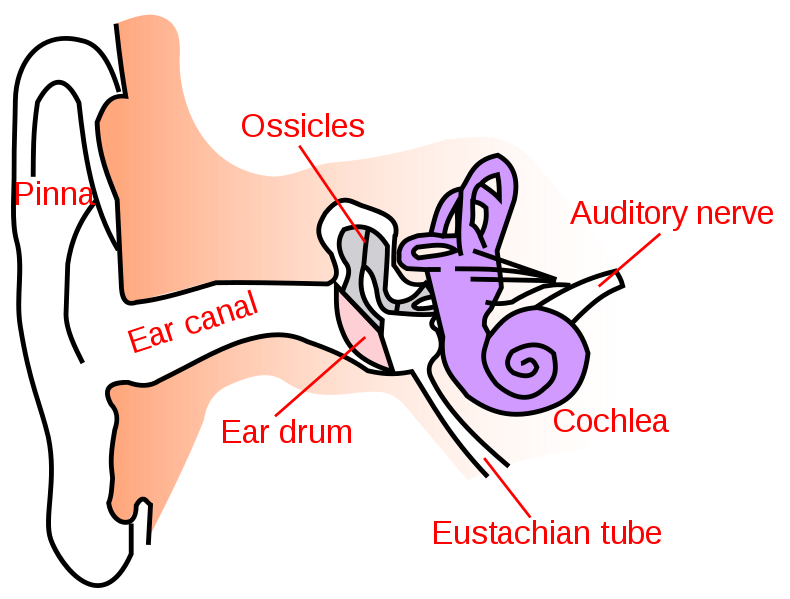
There is a lot of talk about this term, but what exactly is it? Can you define it?
Hearing loss occurs when any part of the auditory system does not function normally, causing the person's hearing ability to be diminished or, in more severe cases, to disappear.
As it is a progressive process, many people are not aware of it and the condition is detected when it is already advanced. However, there are some signs that may warn you that something is going wrong. For example, noticing that you now have more difficulty hearing everyday sounds. Or if at a party or in a noisy environment you can't understand what is being said, or at least not as easily as before. If it only occurs in isolation, there is probably no reason to worry, but if it is repeated and evolves into more, it is always advisable to have your hearing health checked by professionals.
You already know but you can ask us for information or a free appointment to check if you have hearing loss and, if so, at what level.
Each type of hearing loss is treated differently, depending on the causes, which can be diverse:
Hearing loss due to age
Did you know that according to the World Health Organization (WHO), approximately one third of people over the age of 65 suffer from disabling hearing loss?
This is a gradual hearing loss associated with old age. It is very common, and naturally affects older people. It is usually the same in both ears, and it is common that the sufferer is not aware of when it begins to appear but only when it starts to worsen. Some medications or treatments may also affect and accelerate hearing loss. It can usually begin to affect from the age of 50 onwards.
Hearing loss in older people often causes sadness, depression and even isolation, because they are afraid of communicating or making mistakes in public. That is why it is so important to detect the problem and to know that hearing solutions are available. In this case, the role of families is also vital to encourage them to go to professionals, to support them in getting hearing aids and to be by their side to remind them that nothing has changed.
Noise-induced hearing loss
While it is true that we are all exposed to noise to a greater or lesser extent, those that are more intense can damage the delicate structures of the inner ear. It can occur all at once from an intense and very loud sound, such as an explosion, which is the most extreme case. It can also occur gradually by continuous exposure to loud sounds.
Keep in mind that this cause of hearing loss is the only one we can prevent by maintaining good hearing health habits: going for regular check-ups, using earplugs for loud noises or lowering the volume on our headphones, among others.
Even so, noise is not taken seriously. Every year in Europe, 12,000 people die as a result of health problems caused by noise and more than 100 million are exposed to levels that seriously damage their health (data from the European Environment Agency). It is therefore clear that noise pollution is already the second most harmful environmental stress factor in Europe, after air pollution.
The prognosis does not seem to be improving, as the number of people affected by noise is expected to increase at the same rate as cities and mobility grow over the next decade. Again, prevention and awareness of this problem is the first step within everyone's reach.
Hereditary hearing loss
The origin of this type of hearing loss is usually genetic. Numerous studies are currently being carried out to learn how genes work in order to prevent diseases such as this one from developing. However, specialists always recommend early hearing checkups to detect any problems.
The good news is that science continues to advance and significant progress has been made in identifying the genes that may contribute to this condition. The more information we have, the easier it will be to define a treatment.
A study by scientists at the University of Antwerp, published in the American Journal of Medical Genetics, has gone from screening for 2 to 34 genes that cause hearing loss. This means that it is easier to get the diagnosis right when children's hearing is tested. And so parents also have more peace of mind.
Hearing loss caused during childbirth
Occasionally complications can arise during childbirth that lead to later problems. Among the most common complications during childbirth are:
- Lack of oxygen during labor (called labor asphyxia).
- Inappropriate use of certain medications.
- Severe jaundice during the newborn period, which can damage the newborn's auditory nerve.
Even some infections during pregnancy, such as maternal rubella, or low birth weight, can cause hearing problems in the future baby.
Retrocochlear hearing loss
The cochlea is a part of the inner ear that has a coiled tubular shape. When the hearing loss is due to a disorder of the cochlea, it is called cochlear hearing loss. And when it affects the auditory nerve, it is called retrocochlear.
In cases of retrocochlear hearing loss, an implant is usually necessary, since traditional hearing aids have no effect on the auditory nerve. In other words, the nerve cannot transmit the necessary sound information to the brain.
Blockage of the ear canal
This type of "conductive" hearing loss occurs when something blocks the passage of sound in the ear canal or middle ear, causing the level of hearing to be reduced.
This is most commonly cerumen. The glands in the ear canal continually produce earwax, which can sometimes accumulate or even block it completely. In general the remedy is simple: maintaining good hygiene and cleanliness (trying to avoid cotton swabs that can cause irritation) keeps it in optimal conditions, but in more serious cases it may be necessary the intervention of the otolaryngologist to remove the element that blocks the duct.
In addition to earwax, if an accident occurs in which an element gets stuck, the specialist should be consulted urgently for an examination.
Otitis
Otitis is the inflammatory disease of the ear. There are several types depending on its origin or causes, symptoms and severity, but broadly speaking we can group them in:
- Otitis Media: acute or chronic, caused by virus or bacteria. It usually generates ear pain, fever and suppuration. When fluid is generated in the middle ear that cannot drain properly through the Eustachian tube, it accumulates and gives rise to an infection that can affect the level of hearing due to the difficulty of sound passing through the fluid.
- Otitis Externa: can be caused by bacteria or fungi, generally because they are ears that are exposed to humidity, being common in summer, and with symptoms such as intense pain, fever, irritation and suppuration, and hearing loss due to the plugging produced by the pus and swelling.
Cholesteatoma
It is a cyst that originates inside the middle ear and can cause hearing loss, vertigo and even rupture of the ossicles of this part of the ear. It usually requires surgical intervention by a specialist.
Some of the most common symptoms to identify it are a constant discharge from the ear, which may end in bleeding, associated with earaches and headaches. Patients also usually suffer from hearing loss and tinnitus or ringing in the ears. Dizziness is also common, as some inner ear nerves are affected.
Otosclerosis
Did you know that the exact cause is still unknown? Although it seems that hereditary factors are the most important. It is an abnormal growth of the ear bone, which affects the three ossicles located in the middle ear, in particular the stapes, and can also be recovered by surgery.
It has also been found to be more common in women than in men and may involve one or both ears.
Hearing loss cannot be silenced

We would like to end the article with the following facts:
- On the one hand, it is estimated that in the world there are 466 million people with hearing loss.
- On the other hand, in Spain approximately 1 million people suffer from hearing impairment.
If we share knowledge, we are next to these people and we speak without prejudice and without fear of hearing loss everything will be easier. That's why at Claso, we will always listen to you. If you think you are losing your hearing or you know a family member or friend who could be in such a situation, contact us.
Do you have more questions? You should also keep in mind that even if you identify with some of these experiences it does not necessarily mean that you suffer from hearing loss, but it is always advisable to check your hearing health with professionals.
Make a no-obligation appointment to see if you have a hearing loss and, if so, at what level. And remember, the best is yet to be heard.
